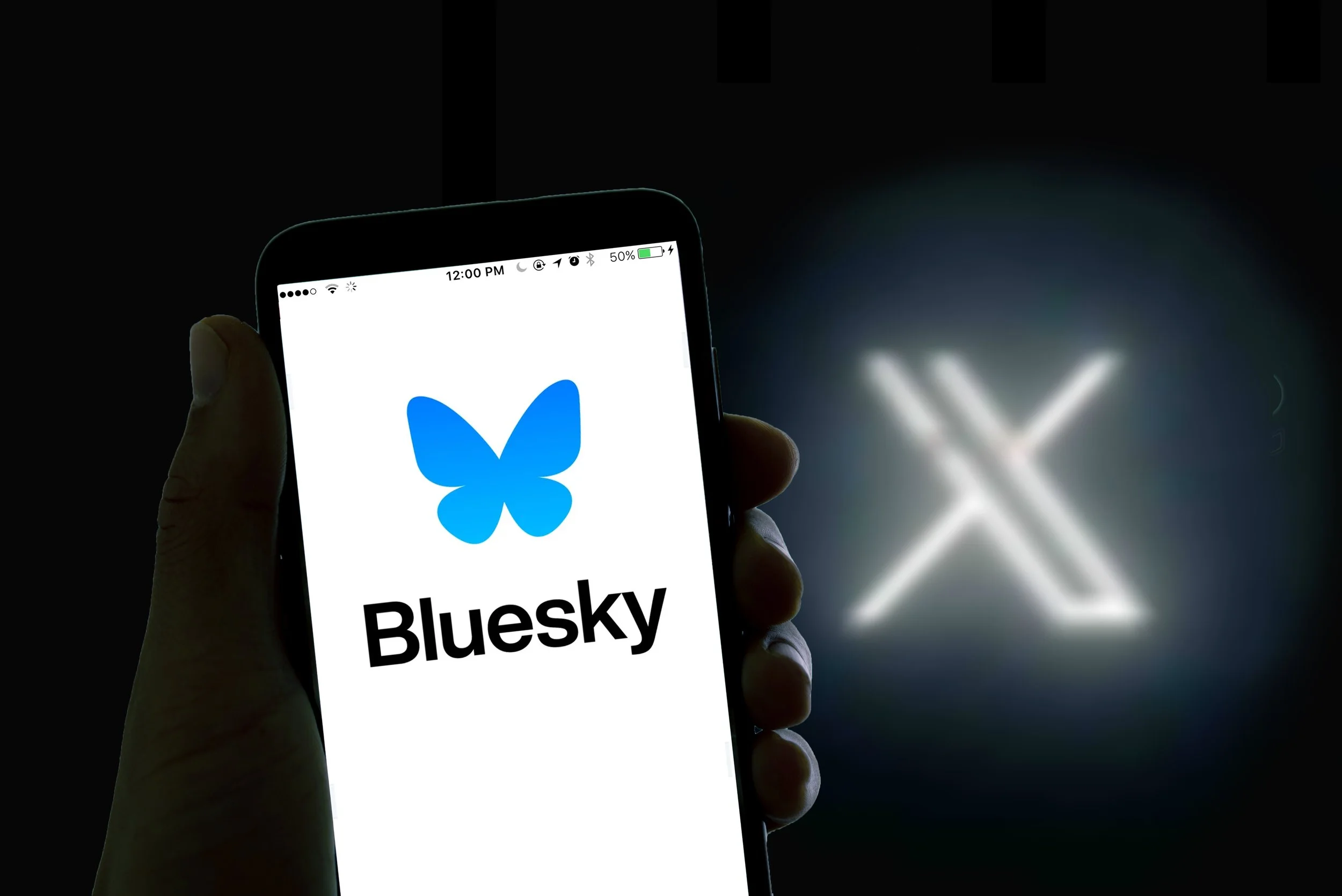Is Bluesky the new Twitter?
Photo Courtesy of Adobe Stock
For quite some time, X (formerly Twitter) has been a cornerstone of the social media sphere. However, that position may not be permanent.
It would be an understatement to say that social media is an important part of modern society. From social movements to political debate to pop culture, it is impossible to find some niche that social media has not been woven into, if not given rise to.
Bluesky began life in 2019 as a project funded by X in order to seek new social protocols, or ways of controlling interactions on social media forums. But ever since late 2022, it has become an independent social media platform run by Jay Garber. And if some metrics are to be believed, there is a question of whether or not it could replace the juggernaut platform it originated from.
For Ryan Haley, content creation expert and Chapman adjunct professor for creative and cultural industries, the answer depends on what version of X you are comparing Bluesky to.
“I'm not sure if there are circumstances that could make Bluesky as big as Twitter was at its peak,” said Haley. “It's anecdotal, but a lot of people I've heard from in the Gen X (and) late millennial demographic are just too old and tired to jump to another social media platform.”
However, Haley said that there is a possibility of Bluesky rising above its competitor in the future.
“I can definitely see (Bluesky) passing Twitter at some point,” said Haley. “As time goes on, Bluesky will continue to upgrade their rules to keep people safe, while Twitter will devolve more and more to seem like what's written in the bathroom stall of a Nazi dance club. That's a tough way to survive.”
Journalist and part-time Chapman lecturer Mallory Carra shares a similar sentiment on the difficulty some people have changing the social media platforms they use, though she is less enthusiastic about the prospects of Bluesky.
“I have many old friends who still insist on using Facebook,” she said. “They share statuses and photos of their kids even after the 2016 election, Cambridge Analytica and the misinformation spreading occured. And I know many journalists who refused to leave Twitter/X. There’s been a considerable amount of folks who migrated to Bluesky, like myself, but there are only a few people really using it consistently.”
Both Carra and Haley outlined a number of reasons for X’s decline, which could contribute to the success of Bluesky. Among them they count the acquisition of X by Elon Musk, the lax monitoring of trolls and harassment in the platform and the 2024 election results.
“Since Musk’s acquisition, X has lost a lot of the features that people liked about it, like API (application programming interface) access, seeing ‘liked’ tweets, verification and respect for journalists and their work,” said Carra. “All of that has gone away.”
Haley was especially sure to zero in on the role that Musk’s leadership has had in shaping the platform.
“Musk purchased Twitter because it prohibited free speech, only to spend his time on the app prohibiting free speech,” said Haley. “His purchase of Twitter is more than just a self-inflicted wound; he's essentially looked like Sideshow Bob entering an endless field of shovels on the ground.”
While Bluesky’s user numbers of 31.5 million might seem small when compared to X’s estimated 330 million, those who have switched platforms are confident in the future of Bluesky. Junior broadcast journalism major Zachary Richter gave it a positive review for a number of reasons.
“I see more variety of content and I like how I can customize the content I see,” said Richter. “I can limit or not limit the amount of political or sensitive content. I also like that the basis of the app is meant to interconnect with other social media websites, so you aren’t reliant on just Bluesky’s servers.”
Students seem supportive of the features that Bluesky offers; the question is whether it will last, or if another app will eventually take over.
“I think there is a lot of hype around Bluesky right now and while we have to wait and see if that hype will fizzle out or not,” said Richter.
For now, it seems that whether or not Bluesky is here to stay will come down to the time period it has been brought up in, as well as how social media in general will be reshaped going into the future.
“I think it's difficult for new social media platforms to break into the cultural zeitgeist, mostly because it's all about timing,” said Haley. “Not only do you have to have a fully functioning platform long before you know if anyone will ever use your app, you have to break at the exact right time, when some percentage of the population is done with whatever is hot at the moment.”

